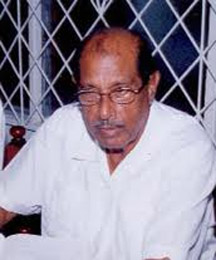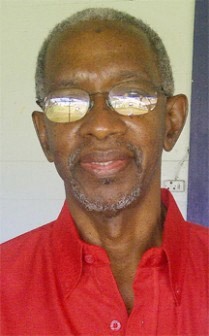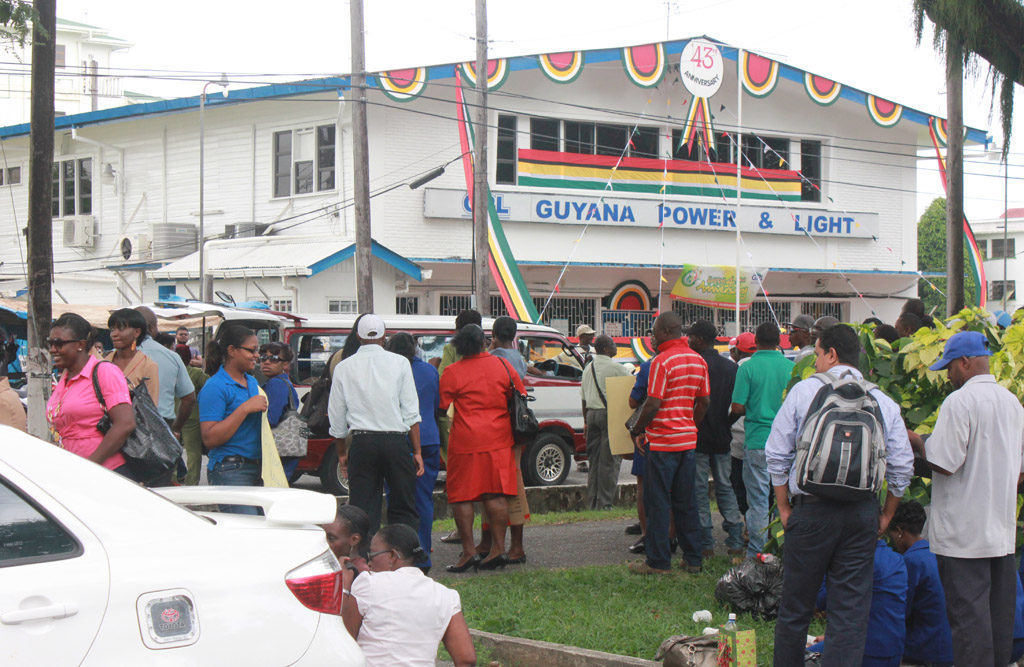The Guyana Power and Light Company (GPL) and the National Association of Agricultural, Commercial and Industrial Employees (NAACIE) will go to arbitration to settle their ongoing wage dispute, effectively ending the workers’ strike that stretched into its fourth day yesterday.
Stabroek News understands that both the company and the union received letters from Minister of Labour Dr Nanda Gopaul, informing them that he had in fact invoked arbitration and asking NAACIE to call off the strike.

The letter also identified Justice Prem Persaud, Deputy Governor of the Bank of Guyana Dr Gobind Ganga and former Clerical and Commercial Workers Union (CCWU) Secretary General Grantley Culbard as the persons selected to serve as the members of the Arbitration Tribunal.
The decision comes in the wake of last Friday’s meeting between Gopaul and representatives from GPL and NAACIE. According to the minister, both parties were unwavering in their positions at the meeting and were ultimately given until yesterday to give favourable responses to him.
Gopaul had said that if the issue was not resolved by yesterday, he would resort to invoking arbitration, setting up a tribunal that would definitively settle the matter.
Calls to NAACIE General Secretary Kenneth Joseph and GPL Chief Executive Officer (CEO) Bharat Dindyal yesterday morning revealed that neither of the parties had changed their positions over the weekend, which most likely prompted the minister to go the route of arbitration.
Joseph said that once arbitration was invoked, all of its members would return to work. He said NAACIE is prepared to accept whatever decision is made by a tribunal.
Since September 19, 2012, GPL and NAACIE have been engaged in a series of negotiations concerning wage increases for the roughly 700 NAACIE members working at the company. According to GPL, NAACIE initially demanded a 25% across-the-board increase, annual performance incentives of 3% to 11% as well as increases on all allowances ranging from 28% to 100%. However, it eventually decreased its demands to an 8% increase. Joseph said that the 8% increase was in keeping with a 2001 agreement signed by the two entities, giving NAACIE’s members an automatic annual and performance increment.
GPL, however, argued that the agreement alluded to by NAACIE had long expired and it made a counter offer of a 5% increase, which was refused by the union.

As a result, the NAACIE-represented employees initiated strike action last Wednesday, which saw employees assembling in front of the company’s Main Street branch before marching to the Duke Street executive offices on two occasions.
Though most of the country was supplied with electricity throughout the strike, the power supplies to Bartica, Leguan and Wakenaam were affected. Officials from the Region Seven Democratic Council had indicated that Bartica had been placed on an electricity-supply schedule until the end of the industrial action. Officials said that until the strike is over, there would be no electricity supply from 8 am to 6 pm daily, but power would be supplied as per normal all night.
As it related to Leguan and Wakenaam, both islands were without electricity up to last Friday.
However, GPL officials yesterday stated that the supply of electricity to all three areas is now back to normal.
In the days following the initial strike actions, NAACIE received support form the Federation of Independent Trade Unions of Guyana (FITUG), the General Workers Union (GWU), and the Guyana Public Service Union (GPSU). All three of the unions expressed solidarity with NAACIE, and called on GPL to honour the 2001 agreement.

Last Thursday, the Chairman of GPL’s Board of Directors Winston Brassington noted the company’s precarious financial situation, saying it had recorded $5 billion in losses in 2012, despite soliciting $6 billion in subsidies and $5.35 billion in loans from the government.
He said that high fuel costs continue to cut deep into its profits and constitute the largest percentage of its expenditure.
Brassington said that last year alone, the company spent $24.1 billion on fuel, while only raking in $29.3 billion from sales, meaning that a monumental 83% of GPL’s financial resources were put towards purchasing fuel. This, he said, along with the $1.5 billion annually in remuneration currently being paid to NAACIE members, makes paying the 8% increase demanded by the union impossible.
Brassington stated that GPL has been quite reasonable with the union in its offer for 2012, as was the case for the last seven years, when increases of 6% to 10% were proposed and accepted. He added that the offer of a 5% increase is more than reasonable, considering the fact that it is more than the company can afford to provide. A government subsidy will have to be solicited in order to pay the 5% which they have offered, he noted.
The employees on strike, however, were unmoved by these claims, saying that with the increased cost of living, including the implementation of the Value Added Tax (VAT), what they currently receive is unacceptable.






